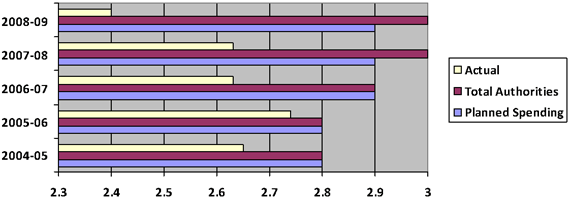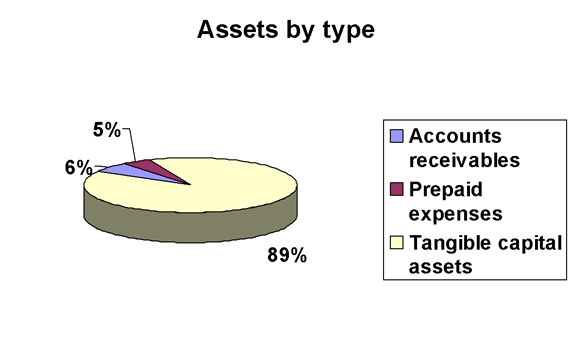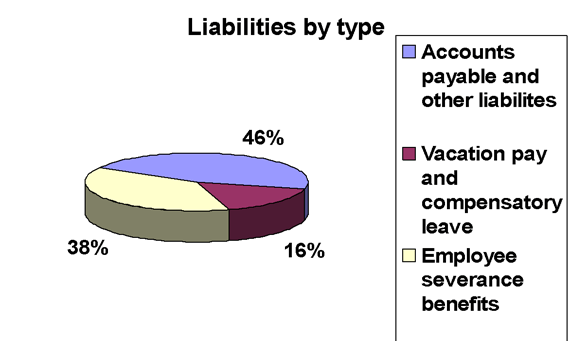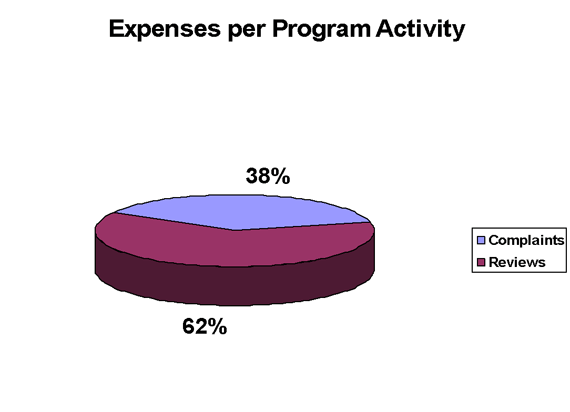ARCHIVED - Security Intelligence Review Committee
 This page has been archived.
This page has been archived.
Archived Content
Information identified as archived on the Web is for reference, research or recordkeeping purposes. It has not been altered or updated after the date of archiving. Web pages that are archived on the Web are not subject to the Government of Canada Web Standards. As per the Communications Policy of the Government of Canada, you can request alternate formats on the "Contact Us" page.
2008-09
Departmental Performance Report
Security Intelligence Review Committee
The original version was signed by
The Right Honourable Stephen Harper
Prime Minister of Canada
TABLE OF CONTENTS
Raison d'être
Responsibilities
Strategic Outcome
Program Activity Architecture
Summary of Performance
Performance Summary
Contribution of Priorities to Strategic Outcome
Risk Analysis
Expenditure Profile
Voted and Statutory Items
SECTION II - PROGRAM ACTIVITIES BY STRATEGIC OUTCOME
Program Activity #1: Reviews
Program Activity #2: Complaints
SECTION III - SUPPLEMENTARY INFORMATION
SECTION IV – OTHER ITEMS OF INTEREST
Chair’s Message
I am pleased to introduce the Performance Report of the Security Intelligence Review Committee (SIRC or the Committee) for the fiscal year 2008-2009.
Security intelligence operates in an ever-changing environment. Faced with a diverse threat environment of state and non-state actors, increased foreign investigations and growing demands from government stakeholders, the world of security intelligence has become increasingly complex. For SIRC, this backdrop has underscored the importance of independent, expert and informed review of the Canadian Security Intelligence Service (CSIS). As SIRC’s Chair, I take pride in the Committee’s commitment to keep abreast of, and adapt to, the changing security intelligence environment.
SIRC strives to provide assurance to the Parliament of Canada and through it, to Canadians that CSIS is acting effectively, appropriately and lawfully in the performance of its duties and functions. Our reviews and complaint decisions provide an important means to reassure Canadians that CSIS investigates threats to national security in a manner that respects Canada’s core democratic values.
Over the past 25 years, Canadians have witnessed important changes in the relationship between the security of the state and the rights and freedoms of citizens. I hope that this Performance Report provides insight into SIRC’s accomplishments and challenges in carrying out its program activities over the past year. SIRC strives to ensure that CSIS is effective and accountable, and we accept this duty with an enormous sense of responsibility and commitment.
Honourable Gary Filmon, P.C., O.M.
Chair
SECTION I – OVERVIEW
Raison D’ être
The purpose of the Security Intelligence Review Committee (SIRC) is to provide assurance to the Parliament of Canada and through it, to Canadians that the Canadian Security Intelligence Service (CSIS) performs its duties and functions in accordance with the law, policy and Ministerial direction.
Responsibilities
The Security Intelligence Review Committee is a small, independent review body that reports to Parliament on the operations of the Canadian Security Intelligence Service. It was established at the same time that CSIS was created in 1984, and derives its powers from the same legislation, the CSIS Act. SIRC’s offices are located in Ottawa.
In order to fulfil its purpose, SIRC has two key Program Activities. The first is to conduct in-depth reviews of CSIS activities to ensure that they comply with the CSIS Act and the various policy instruments that flow from it, and with direction from the Minister. The second is to receive and inquire into complaints by any person about any action of CSIS.
Strategic Outcome
In order to pursue its mandate effectively, SIRC aims to achieve the following strategic outcome:
The Canadian Security Intelligence Service (CSIS) performs its duties and functions in accordance with the law, policy and Ministerial direction.
Program Activity Architecture
The chart below illustrates SIRC’s framework of program activities, which roll-up and contribute to progress toward the organization’s Strategic Outcome.

Summary of Performance
2008-09 Financial Resources ($ millions)
| Planned Spending | Total Authorities | Actual Spending |
|---|---|---|
| $2.9 | $3.0 | $2.4 |
2008-09 Human Resources (FTEs)
| Planned | Actual | Difference |
|---|---|---|
| 21 | 16 | 5 |
Performance Summary
| Strategic Outcome 1: The Canadian Security Intelligence Service performs its duties and functions in accordance with the law, policy and Ministerial direction. | ||
|---|---|---|
| Performance Indicators: Number of reviews/complaint investigations that reported CSIS activities were in compliance with the CSIS Act, Ministerial direction and operational policy. | Targets: No major incidents of non-compliance by CSIS. | 2008-09 Performance: SIRC review findings and the results of complaint investigations found no major incidents of non-compliance by CSIS. |
| Program Activity | 2007-2008 Actual Spending ($ million) |
2008-2009 ($ million) | ||||
|---|---|---|---|---|---|---|
| Main Estimates | Planned Spending | Total Authorities | Actual Spending | Alignment to government of Canada Priorities | ||
| Reviews | 1.6 | 2.0 | 2.0 | 1.9 | 1.5 | Support for a strong and mutually beneficial North American partnership |
| Complaints | 1.0 | 0.9 | 0.9 | 1.1 | 0.9 | |
| Total | 2.6 | 2.9 | 2.9 | 3.0 | 2.4 | |
| Plus: Cost of services received without charge | 0.4 | N/A | 0.3 | 0.3 | 0.4 | |
| Net Cost of Department | 3.0 | N/A | 3.2 | 3.3 | 2.8 | |
SIRC successfully met its strategic outcome during the period under review. Spending dropped in 2008-2009 mainly due to reduced operational costs, including staff leaves of absence, a reorganization that resulted in a temporary reduction of research staff and a decrease in Committee-related costs while awaiting the appointment of new Members. In addition, resources set aside for the planned relocation of SIRC’s office was not realized.
Contribution of Priorities to Strategic Outcome
| Operational Priorities | Type | Status | Linkages to Strategic Outcomes |
|---|---|---|---|
| Continuous improvement in the review and complaints programs | Ongoing | Successfully met | SO1
|
| Management Priorities | Type | Status | Linkages to Strategic Outcomes |
|---|---|---|---|
| Improved corporate management | Ongoing | Successfully met | SO1
|
Risk Analysis
In recent years, the security intelligence community has undergone several legal, policy and program reforms in response to the evolving threat environment. SIRC continues to monitor discussion and debate about potential and ongoing Government initiatives that may impact upon the nature and scope of SIRC’s reviews and complaints investigations.
The findings and recommendations of the Commission of Inquiry into the Actions of Canadian Officials in Relation to Maher Arar (O’Connor Commission) have the potential to affect SIRC significantly. In his policy review, Mr. Justice O’Connor proposed that independent review and complaints investigations be extended to encompass the national security activities of the Canada Border Services Agency, Citizenship and Immigration, Transport, the Financial Transactions and Reports Analysis Centre and Foreign Affairs and International Trade. Mr. Justice O’Connor concluded that SIRC was the logical body to review the national security activities of the latter four entities. A restructured Commission for Complaints Against the RCMP would be responsible for reviewing the national security activities of the Canadian Border Services Agency.
The Government has been studying Mr. Justice O’Connor’s recommendations. The Minister has stated that the Government is waiting for the report from the Commission of Inquiry into the Investigation of the Bombing of Air India Flight 182 (Major Commission) before moving forward on this issue. Justice Major’s report is expected in 2009.
Proposed legislation to establish a National Security Committee of Parliamentarians died on the order paper when the previous Government fell in 2006. In March 2009, Liberal Member of Parliament Derek Lee introduced a Private Members’ Bill (Bill C-352) calling for the establishment of a National Security Committee of Parliamentarians. Should this initiative be pursued, its impact for SIRC remains unclear, including its relationship with the proposed Committee and the respective mandates.
Transport Canada recently launched two initiatives that could have an impact on SIRC. In 2006-2007, Transport Canada implemented the Marine Transport Security Regulations (MTSR) and in June 2007, the Government of Canada launched the Passenger Protect Program. CSIS plays a supporting role as a member of the Passenger Protect Advisory Group and in providing security assessments for persons subject to the MTSR. Consequently, these programs may increase the volume of complaints received by SIRC. Nevertheless, at this writing, the impact upon SIRC resources has been limited.
SIRC continues to follow the ongoing debate on the possible expansion of CSIS’s mandate to include foreign intelligence gathering abroad. A formal expansion of CSIS’s role would have major implications for SIRC, as it would introduce entirely new activities for the Committee to monitor. In addition, SIRC continues to follow discussion concerning lawful access legislation and efforts to modify the way in which law enforcement and security agencies intercept communications.
Given its small size, SIRC struggles with central agency reporting requirements. For instance, SIRC lacks dedicated functional specialists who would be solely responsible for financial and human resource management. As a result, SIRC must increasingly rely on a combination of external contractors and internal staff, which diverts resources from its core functions.
Expenditure Profile

Voted and Statutory Items displayed in the Main Estimates
| Vote # or Statutory Item (S) | Truncated Vote or Statutory Wording | 2006-07 | 2007-08 | 2008-09 | |
|---|---|---|---|---|---|
| Actual Spending | Actual Spending | Main Estimate | Actual Spending | ||
| 30 | Operating Expenditure | 2.3 | 2.3 | 2.6 | 2.2 |
| (S) | Contributions to Employee Benefit Plans | 0.3 | 0.3 | 0.3 | 0.2 |
| Total | 2.6 | 2.6 | 2.9 | 2.4 | |
SIRC’s actual spending in 2008-09 was $2.399 million. As discussed above, spending dropped in 2008-09 mainly due to reduced operational costs (e.g., staffing changes and vacancies) and resources not spent for a planned relocation of SIRC’s office.
SECTION II - ANALYSIS OF PROGRAM ACTIVITIES BY STRATEGIC OUTCOME
SIRC has only one strategic outcome. That is, the CSIS performs its duties and functions in accordance with the law, policy and Ministerial direction.
Although SIRC does not promote any particular viewpoint or policy perspective, our reviews and complaint decisions provide important snapshots of CSIS’s work – offering examinations of the nature and extent of the threat environment, and whether the Service addresses these threats appropriately and effectively and in a manner that respects its powers and authorities. This outcome is important to Canadians as it helps to protect their fundamental rights and freedoms. SIRC serves as a cornerstone in ensuring the democratic accountability of one of the Government’s most powerful security organizations.
The following section describes SIRC’s program activities, including how they contributed to the performance at the strategic outcome level.
The two program activities that will be discussed are:
- Reviews; and
- Complaints.
Program Activity 1: Reviews
| 2008-09 Financial Resources ($ millions) | 2008-09 Human Resources (FTEs) | ||||
|---|---|---|---|---|---|
| Planned Spending |
Total Authorities |
Actual Spending |
Planned | Actual | Difference |
| $2.0 | $1.9 | $1.5 | 14 | 10 | 4 |
| Expected Results | Performance Indicators |
Targets | Performance Status |
Performance Summary |
|---|---|---|---|---|
| Improvement to CSIS’s operational policies and procedures based on the findings and recommendations which SIRC makes in its reviews. | Percentage of SIRC’s review recommendations accepted by CSIS | 70% of SIRC’s review recommendations accepted by CSIS | Mostly met | CSIS has accepted a majority of SIRC’s recommendations |
| Whether the approved annual research plan is completed in its entirety | 100% of reviews completed as per the research plan | Met all | SIRC completed 7 reviews | |
| Frequency that key elements of CSIS’s activities and operations are reviewed | To review each key activity at least once every five years | Met all | SIRC visited three regional offices and a CSIS Station |
Benefits for Canadians
The purpose of the review program is to conduct reviews of CSIS activities to ensure that CSIS performs its duties and functions appropriately, effectively and in accordance with legislation, policy and Ministerial direction. The expected result is to improve CSIS’s performance based on the findings and recommendations that SIRC makes in its reviews.
The review process begins with the Committee’s approval of a research plan for the year. The proposals outlined in the plan and the allocation of resources remains flexible so that the Committee can respond to unforeseen events. Once approved, resources are allocated for each planned review. A typical review involves hundreds of staff hours dedicated over several months. Staff review thousands of pages of hard copy and electronic documentation from CSIS, interview CSIS staff, submit detailed questions for response and, where appropriate, conduct field visits to a CSIS regional office or a foreign station.
A classified report detailing the results of the review, including any findings and recommendations, is presented to the Committee at one of its meetings. SIRC provides copies of finalized reports to the Director of CSIS and to the Inspector General of CSIS, who works for the Minister of Public Safety. At times, a report may be furnished directly to the Minister for Public Safety upon his or her request, or when the Committee deems it appropriate.
SIRC’s research program is designed to address a broad range of CSIS’s duties and functions. This approach allows the Committee to manage the inherent risk of being able to review only a small percentage of CSIS activities in any single year. Thus, over the course of several years, SIRC is able to examine a significant number of CSIS’s investigations and functions. The Committee must always be prepared to adjust the research program to address unforeseen events.
In selecting reviews for 2008-2009, SIRC took into consideration domestic and world events; issues, priorities and concerns identified by Canadians and Parliament; past reviews; matters of interest identified in complaints investigations; and existing and emerging CSIS activities.
Performance Analysis
SIRC has developed several performance measurements for reviews. One measure is whether the research plan approved by the Committee at the beginning of the fiscal year is completed in its entirety. In fiscal 2008-2009, SIRC undertook and completed seven reviews, including a s. 54 report to the Minister of Public Safety.
In addition, SIRC Committee Members and senior staff visited three CSIS regional offices. This provided the Committee with an opportunity to explore the day-to-day work of investigators in the field and to learn about the priorities and challenges of regional offices. Committee Members met with senior CSIS staff and received briefings on regional issues. The Committee also took the occasion to communicate its focus and concerns to CSIS. In addition, the Committee also reviewed one of CSIS’s foreign stations. The primary focus of SIRC’s review of these stations is to monitor the Service’s operations at station and its information-sharing in that context with foreign and domestic agencies.
Other performance measures include follow-up with CSIS to identify whether they have acted on the recommendations contained in previous SIRC’s reviews; the number and scope of reviews relative to SIRC’s available resources; the frequency that different aspects of CSIS operations are reviewed and feedback on the quality of reviews from those who receive them.
In addition, the review program has three sub-activities: the production of SIRC’s Annual Report and communications material, outreach and liaison. It is important to note that each of these sub-activities benefits from the contribution of SIRC legal staff involved in the complaints program.
SIRC’s Annual Report to Parliament is the main communications vehicle for informing Canadians about its work. To the best of its ability and within the legal constraints governing national security and privacy, every review undertaken and every complaint acted upon, is summarized in the Annual Report. In accordance with s. 53 of the CSIS Act, the Report was submitted to the Minister of Public Safety no later than September 30. The Act stipulates that the Report must be tabled in Parliament within fifteen days of its receipt, except when Parliament is not sitting. Due to the parliamentary calendar this past year, the Report was tabled in February, 2009.
Outreach refers to events external to government, such as presentations to seminars and conferences by Committee Members and staff. Examples would be the Chair’s speech at the International Intelligence Review Agencies Conference in October 2008 in New Zealand. As well, the Executive Director made several presentations to students at Carleton University this past year.
Liaison refers to maintaining constructive relationships internal to government, such as those with Parliamentary Committees and Commissions of Inquiry. One example of liaison would be the Executive Director’s appearance before the House Standing Committee on Public Safety and National Security in March 2008.
Lessons Learned
SIRC’s review function continues to evolve alongside the ever-changing environment in which security intelligence operates. As such, SIRC continually examines its review methods and sources to ensure that the Committee fully understands a diverse range of CSIS activities and operations.
Program Activity 2: Complaints
| 2008-09 Financial Resources ($ millions) | 2008-09 Human Resources (FTEs) | ||||
|---|---|---|---|---|---|
| Planned Spending | Total Authorities |
Actual Spending |
Planned | Actual | Difference |
| $0.9 | $1.1 | $0.9 | 7 | 6 | 1 |
| Expected Results | Performance Indicators |
Targets | Performance Status | Performance Summary |
|---|---|---|---|---|
| Parties before SIRC receive a fair and timely resolution of their complaint | Percentage of SIRC complaint decisions upheld by the Federal Court | 100% of complaints decisions upheld | Met all | All of SIRC’s complaint decisions were upheld. |
| Percentage of complaints where SIRC’s decision on jurisdiction is made within 60 days of receiving written complaint | 85% of all jurisdictional decisions | Mostly met | SIRC strives to ensure that a majority of the decisions on jurisdiction are made within 60 days of receiving written complaint. | |
| Percentage of complaints where SIRC’s report is issued within two years of accepting jurisdiction | 85% of all complaint reports | Met all | The complaint report was issued within two years of accepting jurisdiction. |
Benefits for Canadians
The purpose of the Complaints Program is to receive and inquire into complaints about CSIS brought forward by individuals or groups. SIRC acts as an independent, quasi-judicial administrative tribunal and conducts investigations in relation to:
- complaints “with respect to any act or thing done by the Service” as described in the
CSIS Act;
- complaints about denials of security clearances to federal government employees and contractors;
- referrals from the Canadian Human Rights Commission in cases where the complaint relates to the security of Canada;
- Minister of Public Safety’s reports in respect of the Citizenship Act; and
- Complaints from individuals denied permission to board an aircraft under Transport Canada’s Passenger Protect Program or “no-fly” list, and from marine workers whose security clearances have been refused or revoked under the Marine Transportation Security Clearance Program, based on an “act or thing” done by CSIS.
Almost all complaint cases begin as representations to SIRC – either in writing, in person or by phone. SIRC staff respond promptly, usually instructing the prospective complainant about what the CSIS Act requires for a concern to become a formal complaint.
Once a written complaint is received, SIRC conducts an initial review. Where a complaint does not meet certain statutory requirements, SIRC declines jurisdiction. If a complaint is accepted, it is usually investigated through a quasi-judicial hearing presided over by a Committee Member, assisted by SIRC’s legal staff. In investigating complaints, SIRC has all of the powers of a superior court, and has access to all information in the possession of CSIS, except for Cabinet confidences.
A complainant has the right to be represented by counsel and to make representations to the Committee. Pre-hearings may be conducted to establish and agree on procedures with the complainant and/or the complainant’s counsel. SIRC’s counsel provide legal advice on procedural and substantive matters, and will also cross-examine CSIS witnesses when, for national security reasons, evidence must be heard in camera, ex parte.
At the completion of a hearing, the complainant is advised in writing of the Committee’s decision, once any information with national security implications is removed. Depending on the type of complaint, SIRC also sends a report with findings and recommendations to the Minister of Public Safety, the Director of CSIS and – in cases involving the denial of a security clearance – the Deputy Minister of the federal department involved. Summaries of these reports, edited to protect national security and the privacy of the complainants, are also included in SIRC’s Annual Report to Parliament.
Performance Analysis
The Committee has no control over the number of complaints it receives in any given year. The volume, complexity, sensitivity of the complaints, staffing changes and the appointment of new members can have a significant impact on SIRC’s capacity to fulfill its mandate. In 2008-2009, there were 30 new complaints as compared to 32 in 2007-2008. In the past year, SIRC issued one complaint report.
One measure of the program’s effectiveness is whether the government seeks judicial review of the Committee’s decisions by the Federal Court. No such action was taken in 2008-2009. SIRC has also adopted a standard whereby all written complaints are acknowledged formally within seven days of their receipt and that within 60 days, all complaints should either be resolved to the complainant’s satisfaction, determined outside SIRC’s jurisdiction or have become the subject of a Committee investigation.
Lessons Learned
During the period under review the Committee dealt with increasingly complex jurisdictional issues, as well as changes in the composition of Committee Members. Notwithstanding, SIRC continues to strive to ensure that parties before SIRC receive a fair and timely resolution of their complaint.
SECTION III - SUPPLEMENTARY INFORMATION
Financial Highlights
(in dollars)
| Condensed Statement of Financial Position | |||
|---|---|---|---|
| At March 31, 2009 | % change | 2009 | 2008 |
| ASSETS | |||
| Assets | -40% | 68,565 | 113,370 |
| Total assets | -40% | 68,565 | 113,370 |
| LIABILITIES AND EQUITY OF CANADA | |||
| Liabilities | 52% | 912,720 | 599,856 |
| Equity of Canada | 74% | (844,155) | (486,486) |
| Total liabilities and equity of Canada | -40% | 68,565 | 113,370 |
(in dollars)
| Condensed Statement of Operations | |||
|---|---|---|---|
| For the year ended March 31, 2009 | % change | 2009 | 2008 |
| EXPENSES | 6% | 2,826,193 | 2,994,789 |
| NET COST OF OPERATIONS | 6% | 2,826,193 | 2,994,789 |
Further information regarding SIRC’s financial statements is available online at: www.sirc-csars.gc.ca.

Total assets were $68,565 at the end of 2008-2009, a decrease of $44,805 over the previous year (40%). Tangible capital asset represents the largest portion of the SIRC’s asset with $61,501 or 89% of SIRC assets.

Total liabilities were $912,720 at the end of 2008-2009, an increase of $312,864 thousand (52%) over the previous year’s total liabilities of $599,856. The increase was mainly due to the establishment of payable accounts at year end for salary items such as employee benefits plan, performance pay and collective bargaining. Accounts payable represented 46% of the total liabilities, while employee severance benefits were at 38%, for a total of $415,851.

SIRC has two key program activities related to its strategic outcome. The first is to conduct reviews to ensure that CSIS performs its duties and functions in accordance with the law, policy and Ministerial Direction. The second is to receive and inquire into complaints by any person about any act of the Service. $1,755,163 (62%) was spent under the Program Activity; Reviews and $1,071,030 (38%) was spent under the Program Activity; Complaints.
SECTION IV – OTHER ITEMS OF INTEREST
Contact Information
Security Intelligence Review Committee
P.O. Box 2430 Station “D”
Ottawa, Ontario
K1P 5W5
Telephone: (613) 990-8441
Facsimile: (613) 990-5230
Internet: www.sirc-csars.gc.ca
E-Mail: ellardm@sirc-csars.gc.ca
Legislation Administered
Canadian Security Intelligence Service Act